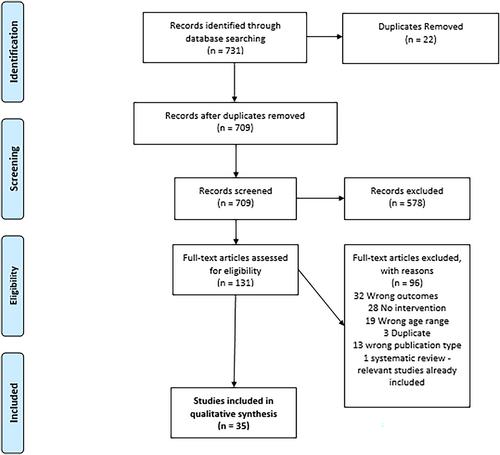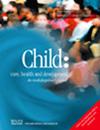Interventions to improve executive functions in children aged 3 years and under: A systematic review
Abstract
Background
Early executive functioning (EF) skills are foundational capabilities that predict school readiness, academic development and psychiatric risk. Early interventions enhancing these capabilities could have critical import in improving outcomes. However, to develop interventions, it is necessary to identify specific EF skills that will vary with child age. Thus, we aimed to examine the characteristics and efficacy of interventions targeting EF in infancy and early childhood up to age 3.
Methods
A comprehensive search of PubMed, Embase, CINAHL and APA PsycINFO databases was performed for studies published before December 2022. Randomized and non-randomized studies of interventions designed to improve at least one EF skill in children ≤3 years were included. EF skills included attentional control, inhibition/self-regulation, activity initiation, working memory, cognitive flexibility, planning ability, problem-solving and performance monitoring. We independently extracted data, used the revised Cochrane Risk-of-Bias tool to assess the quality of the evidence and conducted Synthesis Without Meta-analysis (SWiM). The overall quality of the evidence and the strength of recommendations was determined using elements of the Grading of Recommendations Assessment, Development and Evaluation (GRADE) approach.
Results
Thirty-five studies met inclusion criteria (original n = 7467). Studies were highly variable in the EF skill targeted, target subject (i.e., child, parent and teacher), nature and dosage of the intervention, and timing of outcome assessment. Most interventions focused on improving impulse control and self-regulation. The overall quality of evidence was low to moderate with a high risk of bias, though six studies had low risk of bias but yielded mixed findings of efficacy.
Conclusions
The relatively small number of early EF intervention studies uses such variable methods that there is currently no converging evidence of efficacy to recommend a specific intervention. Thus, findings support the need for a more systematic, targeted approach to the design and implementation of early EF interventions for target populations.


 求助内容:
求助内容: 应助结果提醒方式:
应助结果提醒方式:


